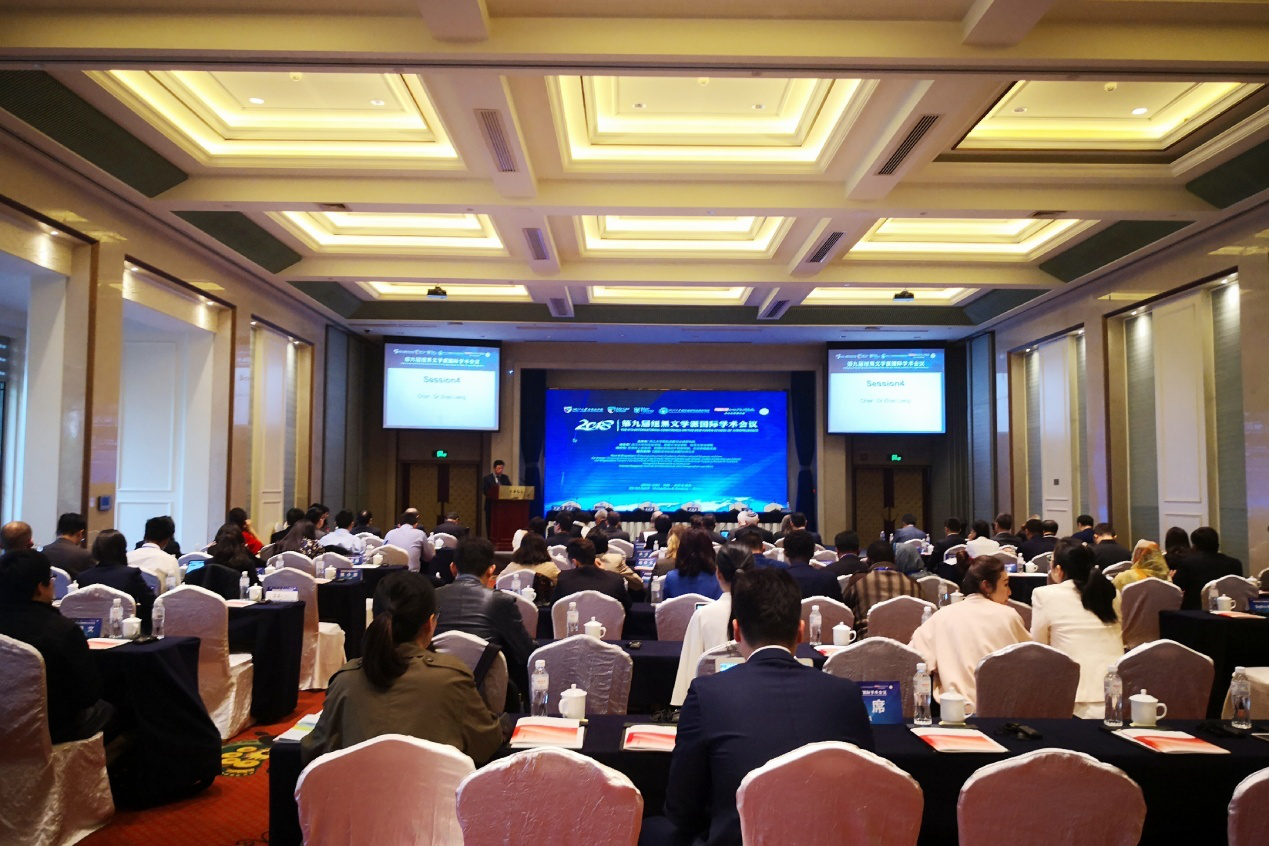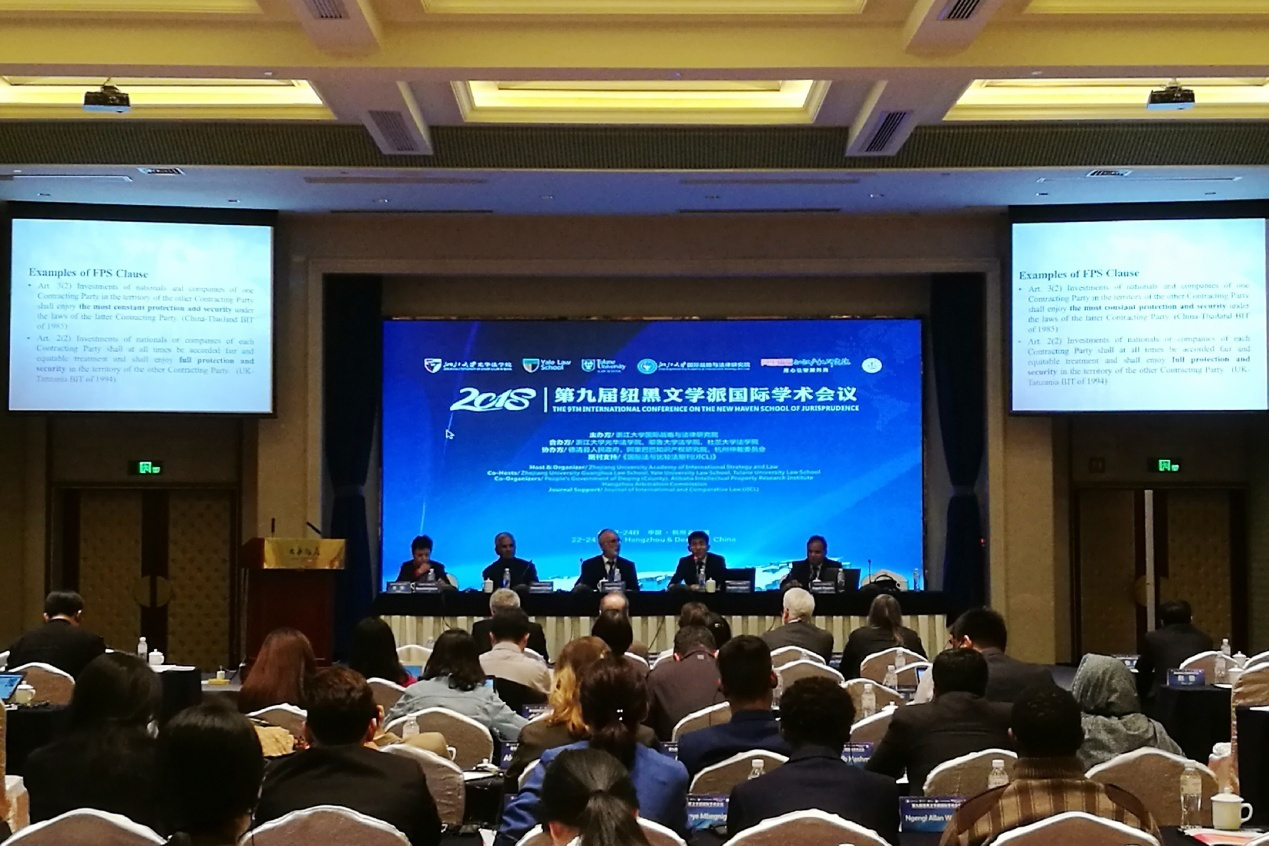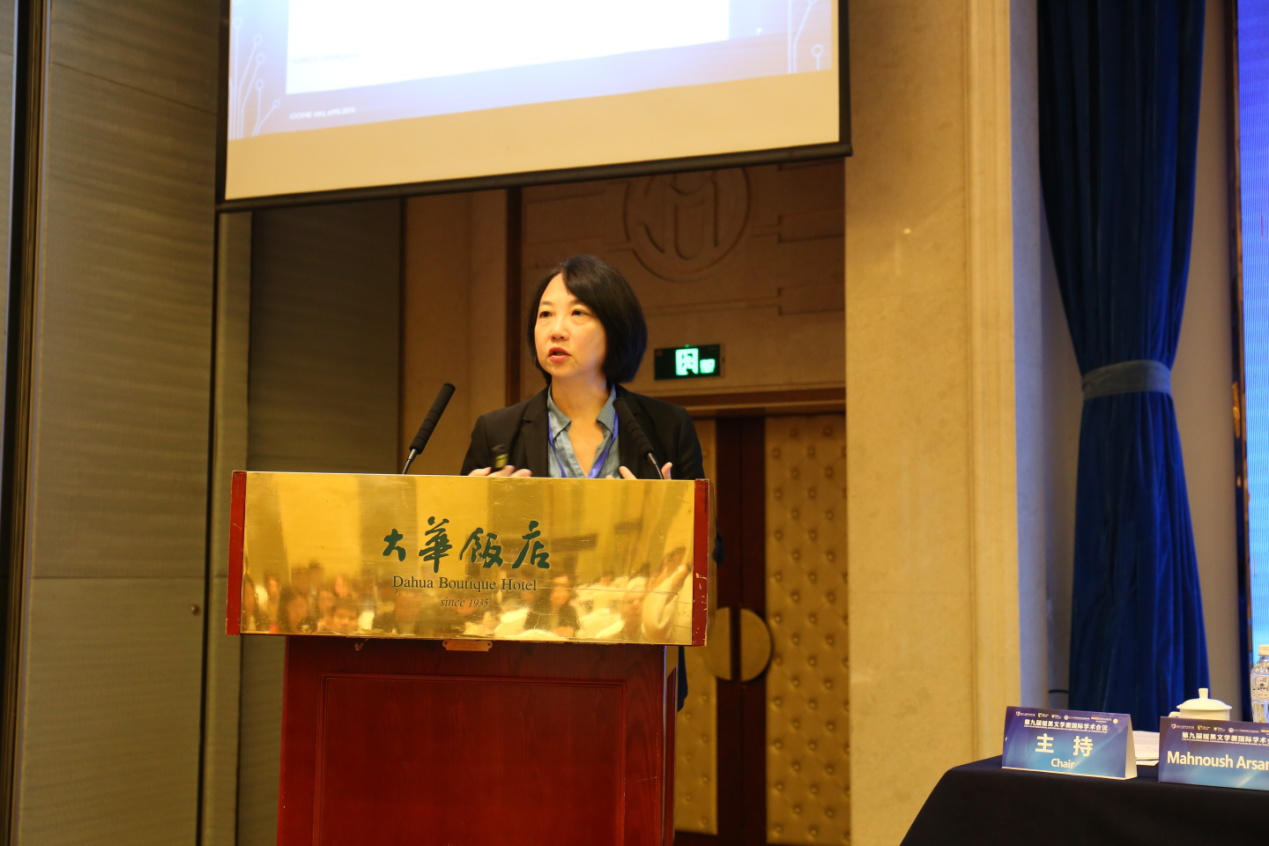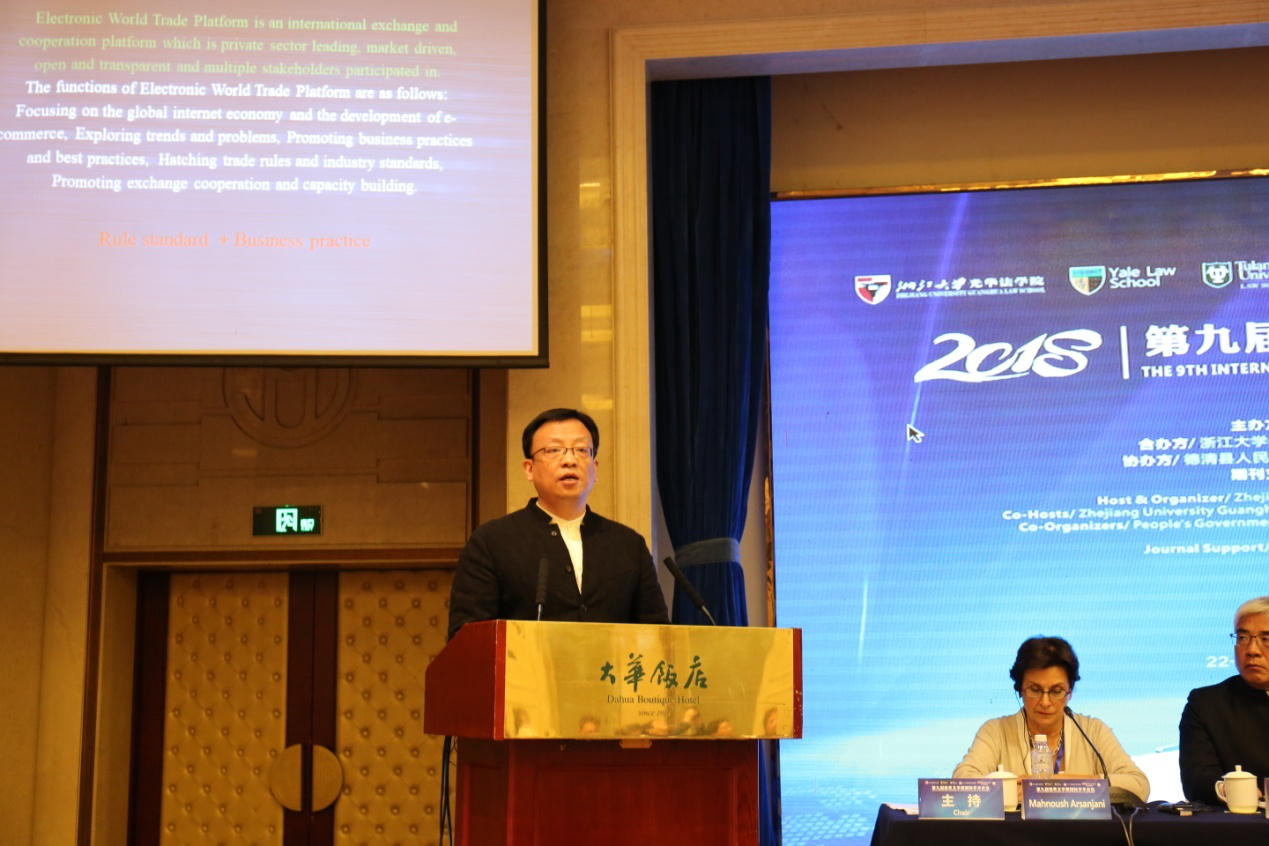The 9th New Haven School International Academic Conference
Release:2018-04-25 Source: Click:1014The 9th New Haven School International Academic Conference, jointly organized by Zhejiang University’s International Strategy and Law Institute, the University’s Guanghua Law School, Yale Law School, Tulane University Law School, Deqing County People's Government, Alibaba Intellectual Property Research Institute and Hangzhou Arbitration Commission, was held from April 22 to 24, 2018 at the Treasure Island International Hotel in Deqing County and Dahua Boutique Hotel in Hangzhou. Zhao Liang, Deputy Secretary General of the Hangzhou Arbitration Commission, and Li Xuanle, Vice President of the Hangzhou International Arbitration Court, and her colleagues Wei Ting and Yi Jingwen, attended the meeting on April 24.
New Haven School, aka the "policy-oriented school", originated from the Yale Law School and has a major influence in the fields of contemporary jurisprudence, international law, comparative law, international politics and international relations. This series of academic conferences brings together the most cutting-edge scholars in the field. This year's ninth session, the fourth time held on the Chinese mainland, will cover many contemporary topics of international law, including traditional theories of international law, international dispute settlement, Sino-U.S. economic and trade relationship, intellectual property rights and international governance of the internet.

Zhao Liang from HAC gave a keynote speech at the meeting in the morning of April 24. Professor Park Luxin from Korea University Law School elaborated on the conflict of interest in the international network law development and information security government expert panel. Professor Zeng Huaqun, Dean of Macau University of Science and Technology Law School, proposed the "common development" model of China's bilateral investment treaty system. Professor Gu Minkang from the City University of Hong Kong Law School shared his views on the negotiation of multilateral investment agreements under the Belt and Road initiative. Yan Jia, partner to the Shanghai rep office of Paul Hastings, introduced the issue of the support of RMB funds for Chinese overseas greenfield investment from the perspective of practicing lawyers. Matthew Erie, Vice Professor of the China Center of Oxford University, shared his ideas on the establishment of law center in the field of international disputes settlements.


There were two sessions for the presentations in the afternoon. The keynote speech as the first session was chaired by Bea Verschraegen, Professor of the Law School of University of Vienna. Mahendra Pal Singh, President of the Central University of Haryana, India, discusses the constitutionalism of India from the perspective of comparative jurisprudence. David Elkins, Professor of the University of Netanya Law School, Israel, elaborated on the issue of corporate taxes. Nartnirun Junngam, Vice Professor of the Law School of the National University of Political Science and Law, Thailand, explored the issue of adequate protection and security in international investment law. Rajesh Sharma, Senior Lecturer of Department of Justice and Legal Studies of RMIT University, focused on the role of institutions in the development of non-litigation dispute resolution mechanisms.


The presentations as the second session was chaired by Mahnoush Arsanjani, Vice President of the World Bank Administrative Tribunal. Wang Guiguo, Senior Liberal Arts Professor in Zhejiang University, expounded his thoughts on the current trade dispute between China and the United States on the right to self-defense and the Sino-US trade dispute. Sun Jungong, Vice President of Alibaba Group, introduced the new progress of Alibaba Group in the field of cross-border intellectual property protection and proposed “Building New Rules for Cross-Border Intellectual Property Protection”. Locknie Hsu, Professor of Law School of Singapore Management University, explored the interaction and effects between the digital age and international trade law. Amy Gajda, Professor of the Law School of the Tulane University introduced new progress in the development of media law in the new era from five cases.




Zhou Jianghong, Professor and Executive Vice President of Zhejiang University Guanghua Law School, Myres S. McDougal and Michael Reisman from Yale University, and ProfessorWang Guiguo from Zhejiang University, made a summary of the meeting and gave an acknowledgement speech, making the conference a complete success.
(Yi Jingwen, HIAC)
 Add: 3F, 6F, 7F and 8F, Jinxiu Mansion, 356 Hushu South Road, Gongshu District, Hangzhou 310005, P.R.China
Add: 3F, 6F, 7F and 8F, Jinxiu Mansion, 356 Hushu South Road, Gongshu District, Hangzhou 310005, P.R.China